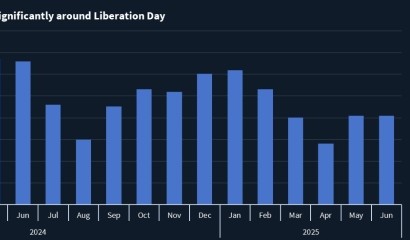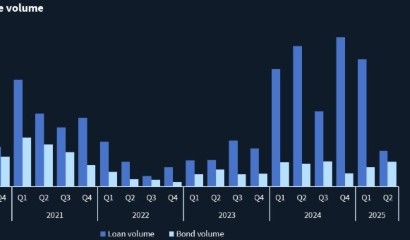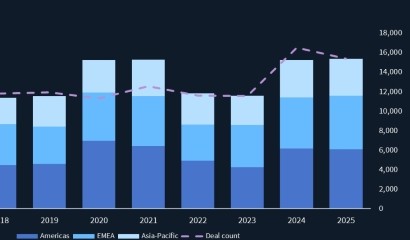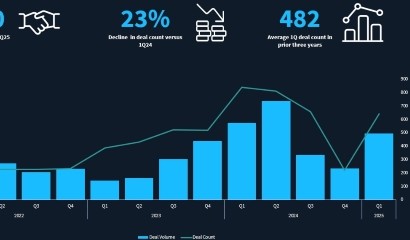Hooters of America lays out terms of new deal with lenders, noteholders and buyers – Restructuring Profile
Hooters of America and various of its affiliates entered into a restructuring support agreement (RSA) on 31 March with (i) each creditor under the debtors’ term loan credit agreement and manager advance credit agreement (collectively, Prepetition Lenders) represented by Sidley Austin, (ii) an ad hoc noteholder group, represented by White & Case, which holds a “substantial majority” of the debtors’ two series of notes, and (iii) Hooters, Inc and Hoot Owl Restaurants (together, the Buyer Group). Although the parties entered into the RSA before the bankruptcy filing, the debtors did not file the agreement until 2 April.
As further discussed below, the RSA provides that the Buyer Group will acquire approximately 103 company stores and form a brand management company to oversee brand management related functions. In addition, the master issuer of the securitization notes will (i) be renamed, (ii) issue new notes, and (iii) enter into an agreement with the brand management company that that sets forth the terms of the relationship between the parties, including with respect to royalty allocations.
Prepetition capital structure and DIP financing
The debtors entered Chapter 11 with approximately USD 376m in funded debt, consisting of securitization debt and non-securitization debt. The former category includes two series of securitization notes issued by HOA Funding, as Master Issuer, which are secured by substantially all of the assets of the “Securitization Entities.”[1] The latter category includes a term loan credit agreement and a manager advance credit agreement (together, the Prepetition Loan Agreements). US Bank and Trust Company serves as collateral agent and calculation agent under each of the Prepetition Loan Agreements. The following table summarizes the debtors’ prepetition capital structure.
The debtors will fund the Chapter 11 cases with a USD 40m DIP term loan, consisting of USD 35m in new money provided by certain of the Prepetition Lenders, and a roll-up of USD 5m owing under the manager advance term loan. On the plan’s effective date, DIP loan claims will be converted to senior-secured, first-lien first-out notes in the principal amount of USD 40m (Class A-1 Notes), which will mature in 30 years and bear interest at Prime + 3%.
Restructuring transactions – RoyaltyCo and Brand Management
The “non-binding” term sheet incorporated into the RSA provides for a series of transactions related to franchising the company stores. For example, on the plan’s effective date, HOA Funding will be renamed “RoyaltyCo,” which will issue the Class A-1 Notes discussed above. Such notes will be guaranteed by the Securitization Entities.[1] RoyaltyCo’s Board of Directors will be comprised of three individuals: (i) one selected by the prepetition term loan lender; (ii) one selected by a majority of holders of the securitization A-2 Notes claims that are members of the ad hoc noteholder group; and (iii) one selected by a majority of holders of the securitization B Notes claims that are members of the ad hoc noteholder group.
The term sheet further provides that the DIP lenders or their delegates will acquire a 50% interest in newly issued shares of RoyaltyCo and the holders of securitization Class B Notes claims (or their respective delegates) will collectively acquire the remaining 50% interest in newly issued shares of RoyaltyCo (Noteholder Equity Entitlement), with such 50% allocated among the noteholders on a pro rata basis in accordance with their respective holdings. Moreover, RoyaltyCo will be an obligor under new Class A-1 Notes, Class A-2I Notes, Class A-2II Notes, and Class B Notes. The A-2I Notes will be issued in a principal amount equal to that of the securitization Class A-2 Notes and with the same interest rate as the securitization Class A-2 Notes, and the A-2II Notes will be issued in the aggregate principal amount of USD 18m. Both series of notes will have a 30-year maturity. The Securitization Entities will guarantee the new notes.
Also, the Buyer Group will form a brand management company – Brand Management – that will be engaged by RoyaltyCo pursuant to a Brand Management & Services Agreement, to oversee all brand-related, franchise-related and management-related functions. In exchange, Brand Management will receive the following royalties and revenues (collectively, BMC Royalties):
- 65% of the royalties paid by the Divested Stores (discussed below);
- 50% of the royalties paid by any new stores or new locations that are opened, provided, that Brand Management will receive 100% of all franchise fees related to such new stores or new locations; and
- 50% of any royalties or other revenue generated under any other license agreement or other license or services agreement or similar agreement, provided that, if such a license is capable of being structured as an annual royalty but instead is sold or otherwise significantly monetized in the future, Brand Management will receive only 25% of the proceeds from any such sale or other full monetization, and the remaining 75% will go to RoyaltyCo.[2]
In connection with the foregoing, the Buyer Group will acquire a portfolio of certain company stores that are referred to as “Divested Stores,” which will include 70 “Accepted Stores” and 33 “Contingent Stores.” More specifically, a separate Buyer Group special purpose entity (SPE) will acquire each Divested Store and the corresponding Buyer Group SPE will enter into a franchisee agreement (or license agreement, if applicable) with respect to each Divested Store. Acquisition consideration for each Divested Store will be comprised of assumption of the Buyer Group SPE assumed liabilities and entry into new franchise agreements and royalty payment arrangements.
Accepted Stores will pay royalties at the current rate (6%), while the Contingent Stores will be granted a 24- month royalty-free holiday post-closing and pay 6% royalties thereafter, and all Divested Stores will continue annual contributions of 1% of net sales to a national ad fund.
With respect to store closures, the RSA’s term sheet provides that if, within the first two years, a Buyer Group member closes a Divested Store that for the six months prior to closing was profitable at a store-level after the payment of royalties and contribution to the ad fund, such Buyer Group member must pay an USD 80,000 fee per such store to RoyaltyCo, except that no fee will be required if stores are closed due to lease terminations by the landlord, severe weather related closures, or other circumstances outside of Buyer Group’s control.
The entity that owns the intellectual property (IP HoldCo) will retain debt-like obligations and liens in favor of the holders of claims under new securitization documents. Also, as long as RoyaltyCo receives, for any twelve month period, royalties in an amount equal to at least 75% of the royalties received by RoyaltyCo for the first twelve months following the plan’s effective date (RoyaltyCo CF Covenant), Brand Management will have various rights that will be structured to survive any sale, refinancing, insolvency, or other similar event with respect to RoyaltyCo, or any breach of contract, rejection, termination without cause, assumption, or assumption and assignment by RoyaltyCo (RoyaltyCo Triggering Event), including the right to (i) continue to manage and control the IP in accordance with the terms of the Brand Management & Services Agreement, (ii) enter into or renew franchise agreements with new or existing franchisees, as applicable, or enter into other IP agreements, in each case, that would be reasonably expected to survive any RoyaltyCo Trigger Event, and (iii) issue licenses in the IP in connection with the foregoing that would reasonably be expected to survive any RoyaltyCo Trigger Event.
Also, pursuant to the Brand Management & Services Agreement, IP HoldCo will grant Brand Management, for no additional consideration, a comprehensive, exclusive, sublicensable license for purposes of performing all brand-related, franchising-related, and management-related functions (BMC License). However, the franchise or license agreement for each Divested Store will provide that, if the Brand Management & Services Agreement or BMC License is terminated (at RoyaltyCo’s sole option) on account of a failure to satisfy the Royalty CF Covenant, the royalties paid by the applicable Buyer Group SPE on account of such Divested Store will be reduced by 65% and the Buyer Group SPE will have the go-forward right to renew the franchise or license agreement, without further modification, in perpetuity so long as such Divested Store is in compliance with the terms of its existing franchise or license agreement and such renewal is on substantially similar terms to such franchise or license agreement.
Wind down transactions
Company stores that will not be acquired by the Buyer Group are referred to as “Unallocated Stores.” On the plan’s effective date, the debtors will wind down their estates, including the Unallocated Stores, on terms to be agreed upon by the debtors, the DIP lenders, and the consenting creditors. To wind down the estates, the debtors will fund an amount to be agreed on by the DIP lenders, the debtors, and the required consenting noteholders into a segregated account held in a trust to be administered by a plan administrator. The debtors and required DIP lenders, in consultation with the required consenting noteholders, will select the plan administrator.
Recoveries
In terms of recoveries, holders of term loan claims under the manager advance agreement will receive the Class A-2II Notes and 50% of the equity in RoyaltyCo, but Hooters of America will not receive a distribution on its securitization manager advance claims. Prepetition term loan lenders and general unsecured creditors also will be wiped out under the agreed-upon plan. As for the noteholders, holders of the Class A-2 notes will receive the new Class A-2I Notes, and holders of the Class B Notes will receive their pro rata share of the Noteholder Equity Entitlement and the new Class B Notes. Holders of equity interests in the Master Issuer, the Non-Securitization Entities, and Hawk Parent also will be wiped out. The following table summarizes the distributions proposed in the RSA’s term sheet.
Timeline
According to the milestones agreed to by the debtors in connection with the DIP Financing, the debtors must file their plan and disclosure statement within 10 days of the bankruptcy filing. Also, within 28 days after the petition date, the DIP loan parties and Buyer Group must have entered into the Buyer Group arrangement (discussed above) and any other sale documents necessary to effectuate the Buyer Group’s acquisition of the Divested Stores. The debtors have also agreed to begin soliciting plan votes within 40 days of the petition date, and aim to obtain confirmation within 75 days of the bankruptcy filing. The debtors have further agreed that the plan will go effective five days thereafter.
Judge Scott W Everett of the US Bankruptcy Court for the Northern District of Texas approved the DIP financing on an interim basis, and has scheduled a 30 April hearing to consider final approval.
Related Links:
Restructuring Support Agreement (Access Required)
Case Profile (Access Required)
Debtwire Dockets: Hooters of America (Access Required)
Prior to joining Debtwire, Sara was a law clerk to two judges in the United States Bankruptcy Court, S.D.N.Y. and practiced in the Financial Restructuring Group at Clifford Chance, where she represented financial institutions (as secured and unsecured creditors, defendants in adversary proceedings, and participants in DIP financings) in high-profile restructurings. She also represented foreign representatives in Chapter 15 cross-border cases.
This article should not be relied upon to make investment decisions. Furthermore, this article is not intended and should not be construed as legal advice. ION Analytics does not provide any legal advice, and clients should consult with their own legal counsel for matters requiring legal advice. All information is sourced from either the public domain, ION Analytics data or intelligence, and ION Analytics cannot and does not verify or guarantee the adequacy, accuracy or completeness of any source document. No representation is made that it is current, complete or accurate. The information herein is not intended to be used as a basis for investing and does not constitute an offer to buy or sell any securities or investment strategy. The information herein is for informational purposes only and ION Analytics accepts no liability whatsoever for any direct or consequential loss arising from any use of the information contained herein. ———-
[1] The Securitization Entities include the Master Issuer, HOA Systems, LLC, HOA Holdco, LLC, HOA Restaurant Holder, LLC, HOA Maryland Restaurant Holder, LLC, HOA Kansas Restaurant Holder, LLC, DW Restaurant Holder, LLC, TW Restaurant Holder, LLC, HOOTS Restaurant Holder, LLC, HOA Laurel, LLC, HOA Waldorf, LLC, HOA Towson, LLC, HI Limited Partnership, HOA IP GP, LLC, HOA Franchising, LLC, and HOOTS Franchising, LLC. The Non-Securitization Entities, on the other hand, include Hawk Parent, LLC HOA Holdings, LLC Night Owl, LLC Owl Wings, LLC Owl Restaurant Holdings, LLC Owl Holdings, LLC Elf Owl Investments, LLC TW Lonestar Wings, LLC Alamo Wings, LLC HOA Restaurant Group, LLC Derby Wings Holdings, LLC Derby Wings, LLC, and Hooters of America, LLC.
[2] RoyaltyCo’s subsidiary will continue to collect RoyaltyCo’s shares of the royalties and revenues from licenses and franchise agreements, according to the term sheet.














